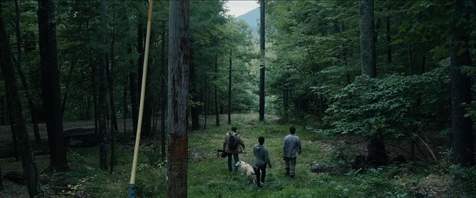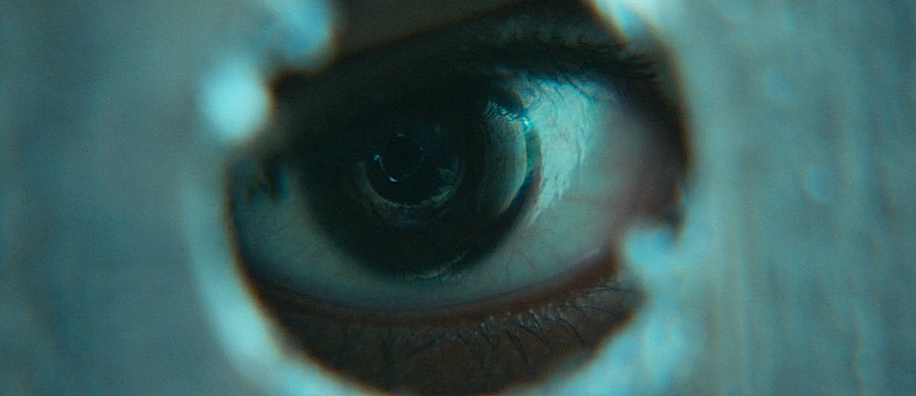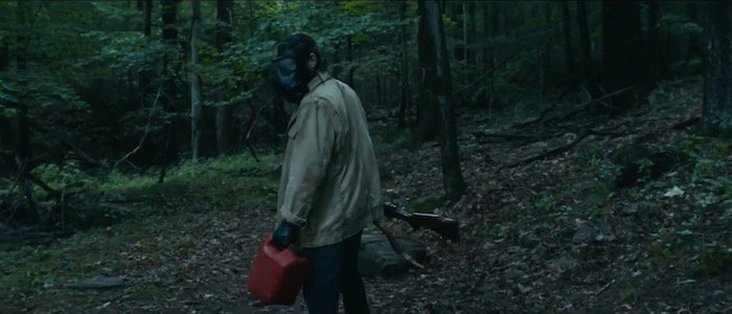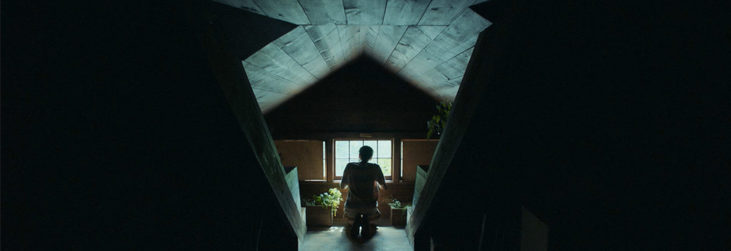 Trey Edward Shults' It Comes At Night is a horror film which attempts to exhibit the quintessence of its genre, personifying the intrinsic nature of horror through a relatively quiet, haunting human story of the primal, sometimes ruthless nature, of survival. It Comes At Night is a story of continuance, following Paul and his family, who have secured themselves in their home, deep in the forest, in an attempt to protect themselves from an unnatural threat that terrorizes the world. Along with his wife, Paul has established a set of rules for him and his family in order to survive, ones that are tested with the arrival of a desperate young family whom seeks refuge in their secure home. It Comes At Night is a film which is intent on remaining vague about the unnatural threat that terrorizes the world in what one comes to understand is some type of post-apocalyptic scenario, but the film never panders to the viewer when it comes to disclosing the details of this dire situation, letting narrative itself and the characterizations' slowly provide insight into the world. In a sense, while Trey Edward Shults' rejects any notion of didactic filmmaking, even when it comes to establishing the environment of its characters, effectively subverting the norms of the horror genre where world-building tends to be considered paramount. Attempting to deconstruct the inherent selfishness and violence of survival, It Comes At Night is a film that is a film which reveals how quickly empathy and humanism are eroded under the guise of existential threats, detailing how desperation and despair drive good natured individuals to do heinous things in order to survive. Trust is a fleeting concept in this environment, with the divulging relationship between the two families creating tension, deceit, and potentially conflict, with much of It Comes At Night being a brooding character study with a great sense of slow building escalation, as the power structures and rules of law established by Paul slowly become tested by this new family, whose demeanor and general outlook in this harsh environment to be more humanistic and empathetic, far less hardened by the grim outlook of the world they inhabit. It Comes at Night could be considered a plea for humanism and empathy even in the most dire of situations, with the film's finale divulging into an extremely dark and traumatic place, one which finds all the character deeply effected, whether it be mentally or physically, by their survival-based actions. It Comes At Night touches on lots of interesting dynamics and thematic ideas outside of this plea, such as the toxic effect of authority or humanities' intrinsic desire for control, but they simply aren't fully explored enough, with the filmmakers intent on delivering a startling manifestation of what true horror is - the erosion of morality and humanism in the face of existential threat. Much of this film works thanks to strong performances and Trey Edward Shults' direction, with the filmmaker's use of sound and image effectively creating an atmosphere of mystery, intrigue, and tension, one that relies heavily on darkness to tell its story of the impending doom and existential threat that is never truly identified by the filmmakers. A dire affair that relies very little on action or gore to create its chilling story, It Comes At Night is a film which attempts to tap into the cold, primal nature of horror, one which finds its characters slowly lose their humanity and sense of morality when their lives are threatened.
0 Comments
Leave a Reply. |
AuthorLove of all things cinema brought me here. Archives
June 2023
|



 RSS Feed
RSS Feed
